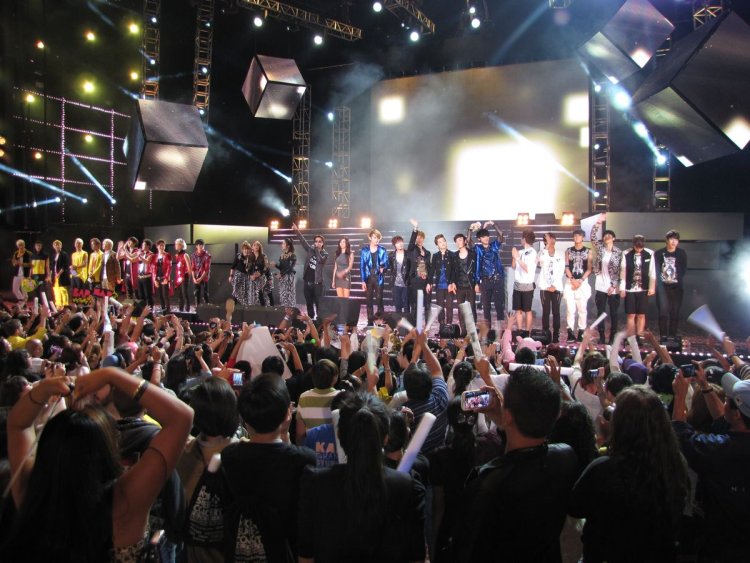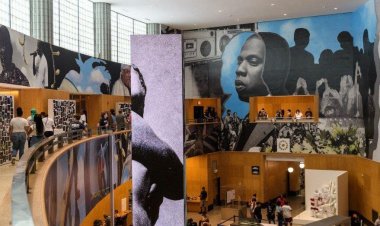K-Pop From Emerging Phenomenon to Global Centrality

A decade ago the world knew “ Gangnam Style ”, the song that functioned almost as an international baptism for K-pop. It was not the first release that exceeded the borders of South Korea nor the first experience of a music market that was positioned as emerging. But it did have the necessary power to be the great founding milestone on which a scene that continues to gain space was built.
With K-pop as the great spearhead,
Korean culture was placed in a preferential place in the entertainment industry on all its margins. You open a streaming platform and the K-drama of the moment never leaves the top 10 of most viewed content; Parasite, as another great consolidation milestone, achieved the epic victory that everyone wants to empathize with; The taxi driver with the radio in the background listens to a song in a language that he does not understand, but that is not so unfamiliar to him as to attract his attention.
“There were specific moments that facilitated a break and a greater reach, that greater extension of Korean culture, but above all of K-pop,” highlights Gabriel Pressello, head of Cultural Management and Institutional Relations of the Korean Cultural Center, in conversation with Indie Hoy -. 'Gangnam Style' was key because it brought to the foreground, massively and virally, some Korean music, Korean pop music
A lot has happened since that moment and today the name of PSY - responsible for the viral hit that did not go unnoticed by anyone - shares the podium with other artists who knew how to capitalize on the effects of that visibility to become central proposals for the music industry. From that symptom of the emerging it evolved to a moment where, for example, we can talk about the KPOP Party, the event that will take place at Niceto Club next Saturday, October 8, and that will materialize all the aspects that make up the Korean pop music phenomenon.
But what was that evolution like, what were its pillars and what impact did it have on Latin culture? First of all, you cannot talk about K-pop without talking about two key aspects to explain the reach that artists emerging from that industry have today: fans and the use of social networks.
Korean pop music did not achieve its current popularity through more traditional communication platforms. Factors such as the language barrier or the construction of a fan stereotype - associated only with teenage women - were some of the elements that delayed general recognition. In this framework, social networks were positioned as that horizontal space in which any disadvantage could be resolved. Anyone who has been on Twitter for a while must have seen more than once how the trends are completely taken over by topics related to K-pop.
Understanding the important role
it plays on its platform, Twitter periodically disseminates data on the Korean music conversation. In 2021 alone, more than 7.8 billion tweets were generated on this topic, and Mexico, Brazil, Peru, Chile, and Argentina were among the 15 countries that contributed the greatest volume of content.
That influence spread and functioned as an ideal springboard to promote other cultural industries, which took advantage of the power of Korean music. “ If it hadn't been for K-pop, it would have been much more difficult for other aspects of Korean culture to become known,” adds Pressello. An example of that for me is paradigmatic is the topic of gastronomy through K-pop. The first people who, outside the Korean community, came in large numbers to Korean restaurants in Buenos Aires were K-pop fans. Before that, Korean restaurants were spaces primarily for Koreans. Without the K-pop fandom, it would have been much more difficult for other aspects of Korean culture to be amplified as much.”
According to data released by Twitter and the internal measurements they carry out, in the last decade, k-content grew by 546% and Korean K-dramas and movies took on increasing relevance in the conversations that take place in different markets around the world. In this digital scenario, all themes converge and one consumption functions as a gateway to another. Thus, also, different generations are incorporated and the idea of the “teenage fan” is diluted in a market where everyone has a place.
Jini Hannel is one of the names that resonates in Argentina when it comes to K-pop. His videos not only follow the agenda of the entertainment industry in South Korea but also propose content that at the same time works as an introductory instance. Just as an example, the video in which he explains how to correctly pronounce the names of the BTS members has more than a million views.
I think we are in a very interesting moment in terms of this expansion, this mix of international or Asian entertainment offers in the Latin world,” says Jini, responsible for hosting the KPOP party. On the one hand, there are the parents who come in for their children and there are the grown-ups who knew all this as children, as teenagers who are growing up, and as adults, they continue to share all that with their children. It is no longer something exclusive to only generations of teenagers, it is now more of a family thing and I love that. And in those spaces, everyone participates because there is also the aunt or grandfather who is present. After all, they love Korean food.
In this amplification movement, Argentina had its milestones that enhanced the reach of South Korean artists and there appears a reference on national television: Dancing for a Dream. “In 2023 they included the K-pop rhythm,” recalls Gabriel. At that time the program was still very strong and that caused K-pop to take a much greater leap in the media and reach other audiences. People who knew nothing about the existence of Korea and even less about K-pop were surprised by such an important phenomenon. That appearance was vital.”
But, in addition, we were “pioneers” by being one of the Latin American countries that interviewed BTS at an early stage in their career and long before becoming the group that catapulted Korean pop music to its current centrality. If PSY was the great founding stone, the broad base on which many artists could rely to jump into the international market was built on BTS.
It is within this framework that the KPOP Party arrives, with a proposal that responds to this moment that Korean culture is going through in Argentina, where the public crosses different generations and consumptions. The party will include, among other activations, fan dancers - with "one of the most succulent prizes I have seen in contests of this type" -, a neon party, random dance, an oriental food bar, video games, and merchandising stands.
I am someone who has been in this for a long time and now it is a fact that events are multiplying throughout the country and the region,” Jini concludes. Obviously, as a Korean, I feel deeply grateful that you take such an interest in our culture. And sometimes I say 'our best ambassadors are our fans', because this is thanks to that genuine love. I think we are in the moment of offering a show not only for the fans who know, but for the entire public, and that seems super good to me because it means that we can put them on the same stage as any other international artist.

 Admin
Admin 









